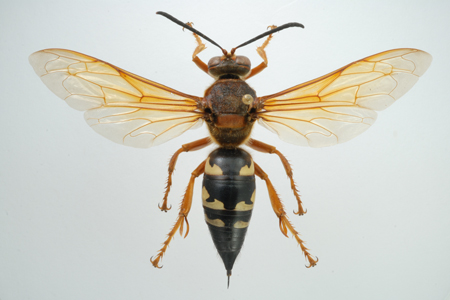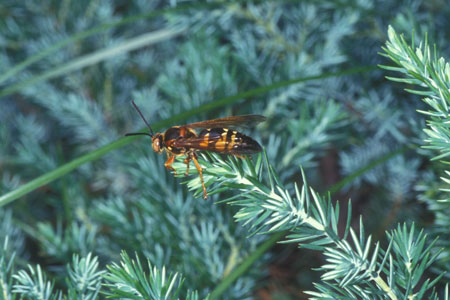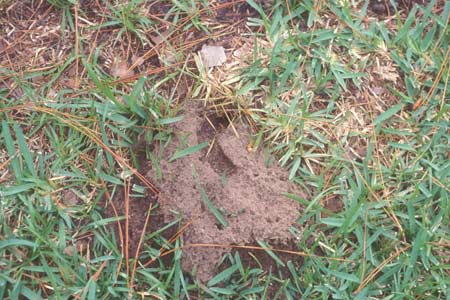Active Seasons




Appearance and Size Facts
- Cicada killer wasps have a black body with yellow marks across the thorax and abdomen
- Have a large stinger which can be very painful if stung
- Likelihood of being stung is very rare
- Size: Ranges between 1 1/8 and 1 5/8 inches long
- Prefer areas with little or no vegetation.
We service for cicada killer wasps in the following locations and their surrounding areas:

Behavior and Habitat of Cicada Killer Wasps
Cicada killers are solitary wasps. Males tunnel out of the ground to select a new territory for mating. Shortly after mating, females dig deep burrows, and, upon completion, seek out a cicada, paralyze it with a sting, and lay an egg on the paralyzed body. Within two weeks, the egg hatches into a larva, eats the cicada, and overwinters in the pupal stage. Adults emerge in the spring to repeat the cycle.
Cicada killer wasps prefer areas with very little to no vegetation, and will nest in lawns, parks, sandy lots, or the edges of forests. They will be more prevalent in areas where an abundance of cicadas are present.

Signs of Infestation of Cicada Killer Wasps
The large wasps and the entry area to the nest are the most likely signs.

Tips for Prevention of Cicada Killer Wasps
These insects are not likely to sting, as they are solitary wasps (unlike social wasps which are aggressive and prone to stinging). Due to this characteristic, the opening to the cicada killer wasp nest can be closed with a stone, patio paver, or other impervious object. However, because the threat of stings is low and these wasps are actually beneficial by reducing plant-damaging insects, closing off the nest entry areas should be a last resort situation.




